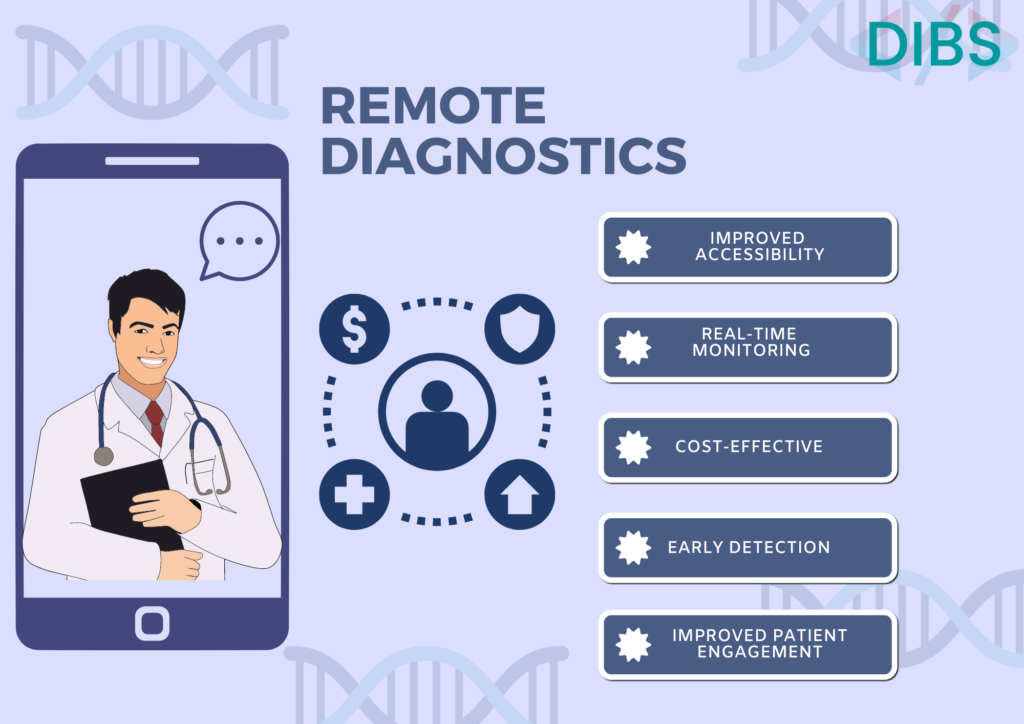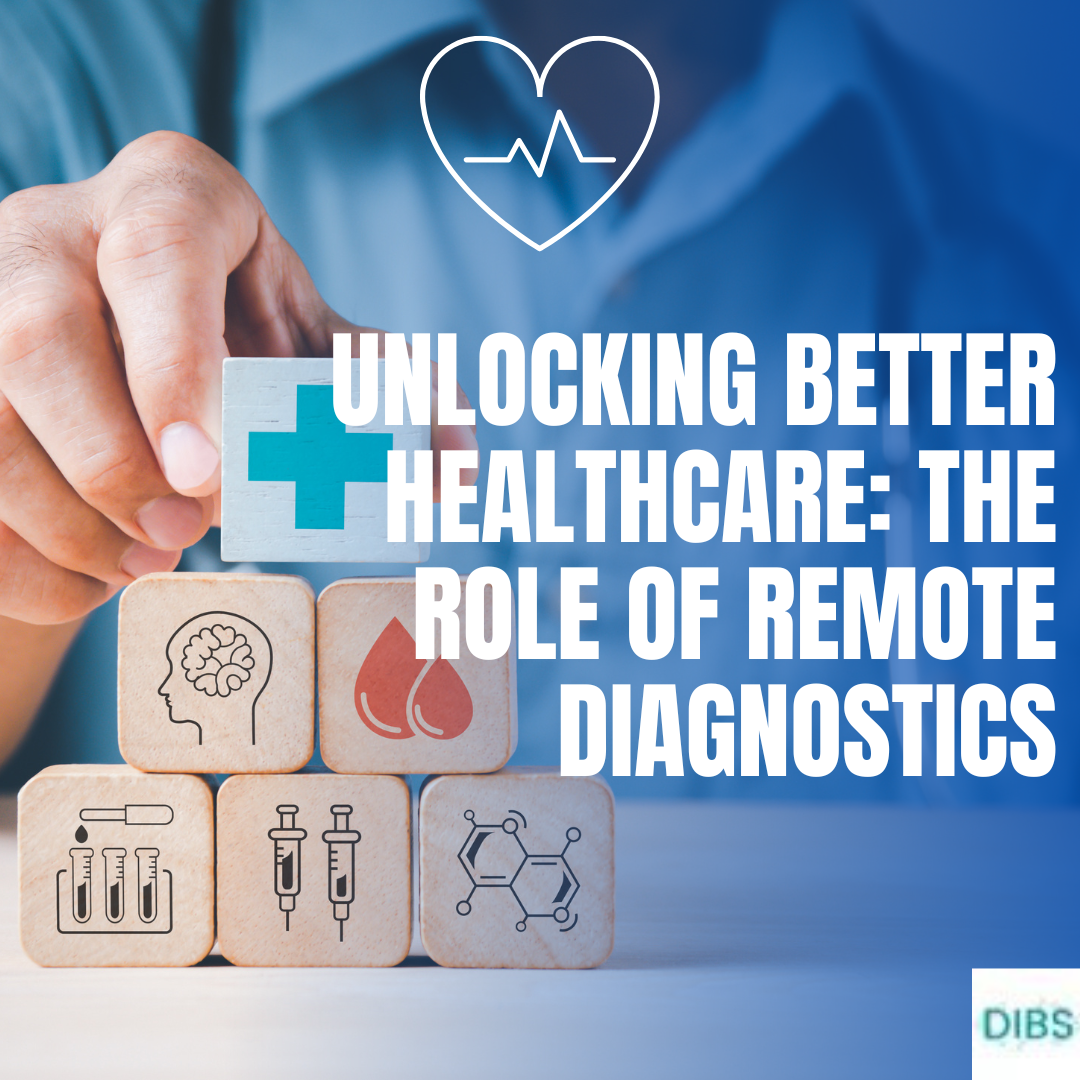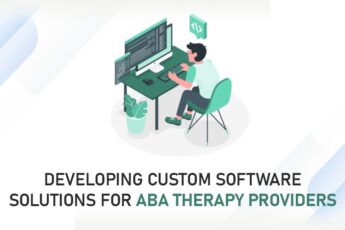In an era driven by technological advancements, the healthcare industry is experiencing a profound transformation, and one of the most ground breaking innovations making waves is remote diagnostics. While its benefits for individual users are well-known, the true potential of remote diagnostics solutions shines when they are embraced by companies and businesses in the healthcare sector. Whether it’s a wellness center, a specialty hospital, or a diagnostic laboratory, integrating remote diagnostics can lead to enhanced efficiency, precision, and ultimately better patient outcomes.
Enhanced Reach and Accessibility through Remote Diagnostics
Healthcare businesses, such as wellness centers and specialty hospitals, often cater to a specific patient demographic or medical condition. However, the integration of remote diagnostics solutions allows these establishments to transcend geographical boundaries. Patients no longer need to travel long distances for routine check ups, follow ups, or consultations. Remote diagnostics empowers healthcare providers to extend their services to a broader clientele, thereby increasing their market reach and impact.
Optimized Resource Allocation
One of the significant challenges faced by healthcare businesses is the optimal allocation of resources. Specialty hospitals, for instance, often have limited capacities for critical care cases. By incorporating remote diagnostics, these businesses can better prioritize their in-person resources for cases that require hands-on attention, while routine monitoring and check-ups can be effectively managed remotely. This resource optimization enhances the overall efficiency of healthcare facilities.
Data-Driven Insights for Personalized Care through Remote Diagnostics
In the digital age, data is king, and remote diagnostics platforms provide an avenue to collect a wealth of patient data. The integration of advanced algorithms and machine learning into these solutions empowers businesses to gain actionable insights from this data. For example, a specialty hospital focusing on diabetes care can remotely monitor patients’ blood glucose levels and treatment responses. These insights enable healthcare professionals to tailor treatment plans and interventions to each patient’s unique needs, leading to more personalized care and improved outcomes.
Proactive Healthcare Management
Traditional healthcare models often involve reactive interventions, where patients seek medical attention once symptoms arise. Remote diagnostics flips this paradigm by enabling businesses to adopt a proactive approach to patient care. By continuously monitoring key health indicators—such as heart rate, blood pressure, or oxygen saturation wellness centers and specialty hospitals can detect deviations from the norm early on. This early detection allows for timely interventions, preventing minor issues from escalating into major health concerns.
Streamlined Workflows and Efficiency Gains
Diagnostic laboratories are essential components of the healthcare ecosystem, and remote diagnostics solutions can significantly impact their operations. Automation can handle various aspects, from sample collection to analysis and reporting. This automation reduces the need for manual intervention, expediting the diagnostic process while minimizing errors. The result is a streamlined workflow that enhances efficiency, reduces turnaround times, and improves the overall diagnostic experience for patients.
Real-Time Collaboration through Remote Diagnostics
The realm of healthcare often requires collaboration among multiple specialists spread across different locations. Remote diagnostics platforms facilitate real time collaboration, enabling medical professionals to consult and discuss cases as if they were physically present in the same location. This feature is particularly beneficial for complex cases that demand input from various experts to arrive at well-informed decisions.
Cost Savings for Patients and Businesses
Remote diagnostics solutions offer substantial cost savings for both patients and healthcare businesses. Patients can avoid the expenses associated with traveling for routine appointments, especially those who live in remote areas. On the business side, remote diagnostics can minimize overhead costs related to maintaining physical infrastructure for routine check ups and consultations, contributing to improved financial viability.
Data Security and Compliance
Healthcare businesses handle sensitive patient information, and data security is a paramount concern. Leading remote diagnostics solutions prioritize data security and comply with rigorous healthcare regulations. This commitment to protecting patient data builds trust and confidence among patients, ultimately enhancing the reputation of the healthcare business.
Unlocking the Future of Healthcare: Implementation Considerations through Remote Diagnostics
While the potential of remote diagnostics for healthcare businesses is undeniable, a successful implementation requires careful planning and consideration. Here are key points to keep in mind:
1. Customization for Specialty
Different healthcare businesses have distinct needs and priorities. Whether you’re running a wellness center, a specialty hospital, or a diagnostic lab, it’s crucial to ensure that the remote diagnostics solution is tailored to address your specific requirements. A one-size fits all approach may not yield the desired results.
2. User-Friendly Interface
The usability of the remote diagnostics app is critical for both healthcare professionals and patients. A user friendly interface ensures that the platform is easily navigable, reducing the learning curve and enhancing user adoption rates.
3. Integration with Existing Systems
Seamless integration with existing electronic health records (EHR) systems and other medical software is essential. So, this integration avoids data silos and ensures a comprehensive view of patient health, enabling better decision making and continuity of care.
4. Scalability
As a healthcare business grows, the remote diagnostics solution should be scalable to accommodate an increasing number of patients and data points. Scalability ensures that the platform remains effective and responsive even in the face of expanding operations.
5. Comprehensive Training on Remote Diagnostics
Healthcare professionals need comprehensive training on effectively using the remote diagnostics platform. So, this training should encompass understanding the data insights provided, interpreting them accurately, and maximizing the platform’s capabilities for improved patient care.
6. Regulatory Compliance
Maintaining regulatory compliance is non negotiable in the healthcare sector. It’s imperative that the remote diagnostics solution adheres to relevant healthcare regulations and data protection laws to safeguard patient confidentiality and maintain ethical standards.

In conclusion, the integration of remote diagnostics solutions has the potential to revolutionize the way healthcare businesses operate. Whether you’re managing a wellness center, a diabetic specialty hospital, or a diagnostic lab, the adoption of such solutions can lead to enhanced reach, optimized workflows, personalized care, and substantial cost savings. By harnessing the power of technology, healthcare businesses can provide better services, improve patient outcomes, and position themselves as pioneers in an evolving healthcare landscape. Remote diagnostics isn’t just a tool; it’s a pathway to a more efficient, precise, and patient-centric future in healthcare. DIBS can help develop custom remote diagnostics tools that provides improved accessibility, real-time monitoring, cost-effectiveness, early detection, and improved patient engagement. Thus, as technology continues to evolve, remote diagnostics will continue to play an important role in providing quality medical care.
Talk to our experts to delve into the latest frontiers of healthcare technologies. Discover the innovative strategies employed by the DIBS team to revolutionize medication ordering, enhance medication safety, and optimize physician workflows, all converging towards the ultimate goal of elevating patient outcomes.
Our conversation begins with an exploration of how the DIBS team is redefining medication ordering. Through the seamless integration of advanced technologies, they are simplifying and expediting the process, ensuring that patients receive the right medications promptly. This not only fosters efficiency but also empowers healthcare providers to dedicate more time to direct patient care.







Leave a Comment